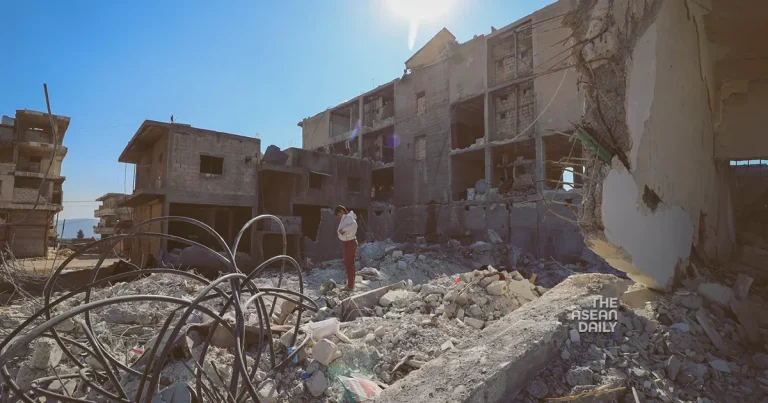20-12-2023 (BEIJING) Thousands of rescuers are battling challenging conditions as they work tirelessly to locate and aid survivors in the aftermath of a powerful earthquake that struck a remote area in China’s northwestern Gansu province over a day ago. The magnitude-6.2 earthquake hit Jishishan county near the Gansu-Qinghai border, causing significant damage, displacing residents, and triggering landslides and mudslides.
The earthquake, occurring a minute before midnight on Monday, sent residents fleeing from their homes into the cold night. The disaster damaged roads, power and water lines, and destroyed over 150,000 homes. Emergency responses have been activated, with numerous departments deploying thousands of personnel to search for survivors and provide assistance.
The affected region, situated between two plateaus, features complex topography with altitudes ranging from 1,800m to 4,300m, making rescue operations challenging. Compounding the difficulties is the severe cold snap gripping China, with temperatures around the quake epicenter in Gansu dropping to -15 degrees Celsius.
Recovery efforts are further complicated by the risk of hypothermia for individuals trapped under rubble in sub-zero temperatures. The cold conditions reduce the window for survival to five to ten hours for uninjured victims, according to local media citing researchers.
As of Wednesday morning, Gansu reported 113 dead and 782 injured, while Qinghai reported 18 dead and 198 injured. Rescuers managed to save 78 people in Gansu. The earthquake-prone region, lying on the northeastern boundary of the active Qinghai-Tibetan plateau, often experiences seismic activity.
In addition to the freezing temperatures, concerns arise about potential aftershocks. The Gansu Provincial Seismological Bureau warned of the possibility of magnitude-5 aftershocks in the coming days, closely monitoring seismic activity for early warnings. By early Wednesday, two aftershocks above magnitude 4.0 and eight above magnitude 3.0 were recorded.
The quake’s shallow depth at 10km, considered shallow by experts, adds to the risk of significant ground damage. Authorities are working to ensure a stable supply of essential goods, including rice, flour, and oil, in the affected areas. Emergency supplies are being delivered to aid those impacted by the earthquake and its aftermath.




